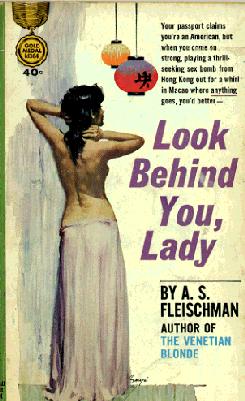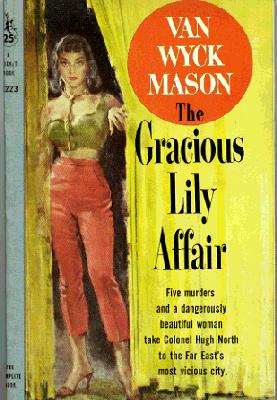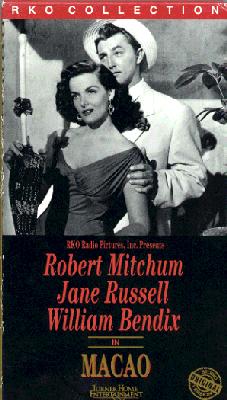The Steamy East (2)Onward to MacaoBy Mark SchreiberMainichi Daily News A.S. Fleischman's Look Behind You, Lady, set in Hong Kong and Macao, was first published in 1952. This is the third printing, 1963. The seafaring Portuguese were the first to round the Cape of Good Hope in 1488, and pressed eastward to the Indian Ocean. Vasco da Gama's arrival in 1498 set the stage for colonization of areas on the west coast of India. The Portuguese defeated an Arab fleet in 1509, after which their next stop was to capture Goa, an Indian port south of Bombay, in 1510. Only a year later, they occupied Malacca, the port which controls the straits between Sumatra and the Malay peninsula. Once the Malacca Straits were breached, China was only a few week's sail away. First to reach' it was a sea captain named Rapahael Perestrello, who in 1515 sailed as far as the islands at the mouth of the Canton River - the first time for a European vessel to reach the coast of China. Within seven years, another Portuguese, Simon de Andrade, attempted to establish sovereignty over Chinese territory at San-shan, near present-day Macao, and a military engagement ensued. Only shortly afterwards, the Chinese provoked a quarrel with another expedition from Portugal, resulting in a near massacre of the foreign visitors. |
|
From first edition of Van Wyck Mason's The Gracious Lily Affair, a Macao potboiler, dated November 1958. Meanwhile, Spaniard Ferdinand Magellan became the first explorer to circumnavigate the globe, in a voyage lasting from 1519 to 1522. (Only one of the five ships of the expedition returned to port, however, and Magellan himself was killed in battle with the natives near Cebu, Philippines, in April 1521 - but not without first claiming title to that chain of islands for Spain. The first and most durable of the early European elements in the Far East was Macao, Cidade do Nome de Deos na China, the City of the Name of God in China, a sleepy six square mile enclave at the end of a narrow peninsula on the Canton River. About 35 miles from Hong Kong, it has a present-day population of over 300,000 Although 1557 is the year given to the founding of Macao, circumstances behind the colony's true origins are obscure. One story has it that in 1535, the Portuguese obtained the permission of Chinese officials to erect some sheds for drying some goods damaged in a storm. The sheds endured, although for the first two or three decades little attention was paid to the colony. Another version has it that the Portuguese first gained the goodwill, of their Chinese hosts by driving off, a band of pirates which had plagued the area. The city took its name from A-macao, a nearby temple on the peninsula dedicated to A-ma of Ma-Tzu, the Chinese goddess of the sea. Annual rents were paid to the Chinese government until the communist takeover in 1949. Like its larger neighbor Hong Kong, Macao's eventual reversion to China is likely to take place by the end of the century. |
|
The 1952 RKO noir drama Macao promised moviegoers "steamy passion" in a setting of "international intrigue." Robert Mitchum gives one of his better performances. Copyright 1992, Turner Home Entertainment. In addition to being the sole outpost of trade for several centuries, Macao served as the gateway to China for European Jesuit scholars, of whom a number, such as Veribest, Schall and Mateo Ricci, were admitted to disseminate their considerable knowledge of astronomy and mathematics at the capital, Peking. The novel Manchu by China watcher Robert Elegant is one such story, an account of the adventures of Francis Arrowsmith, a young English Jesuit and soldier-of-fortune at the Chinese imperial court. The novel covers the tumultuous declining years of the Ming Dynasty up to China's 1644 takeover by the Manchus. Also of interest is City of Broken Promises (1957) by Austin Coates. The book, which takes place in the 1780s, is a fictionalized account of the life of Martha Merop, an orphan who was sold into prostitution at 13 and who prevailed to become a female taipan and Macao's greatest. public benefactress. Daniel Carney's 1985 novel Macau gives a more contemporary look at the colony. The story of a Chinese female gang leader attempting to smuggle a fortune of gold into Hong Kong by ship, Macau is a stirring tale of modern-day piracy that pits rival Chinese gangs against each other and the British. The 1986 spy thriller The Bourne Supremacy, by Robert Ludlum, also features some heavy action in Macao's gambling casinos And back alleyways. It did not take the Manchus long after gaining control of China in the mid-1640s to realize that the ever-increasing arrivals of foreign barbarians were more trouble than they were worth; as such, Macao remained the sole foreign outpost for trade with China. Meanwhile, aggressive Dutch and English privateers roamed the China seas, waiting for the events, not long in coming, which would redraw the map of Asia once again. |
www.wetherall.org


